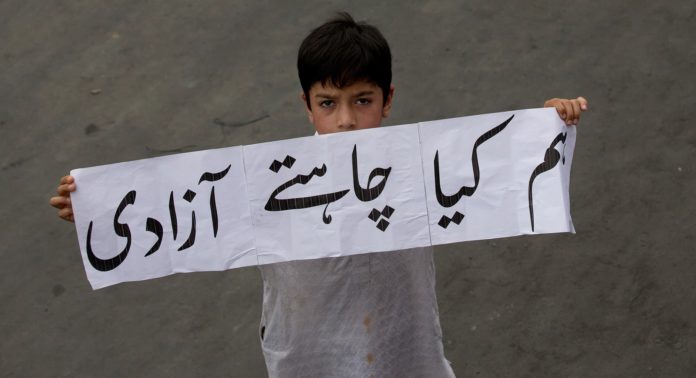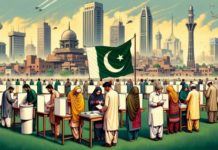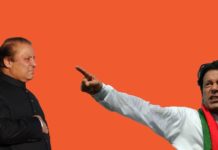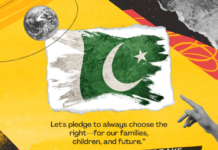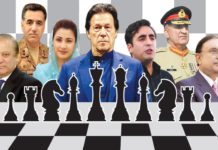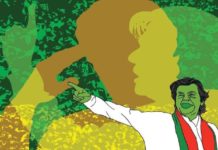The process by which New Delhi has scrapped the preferential status accorded to by the constitution and split J&K into two union territories is constitutionally vulnerable.
Many constitutional experts believe the provision that permits Article 370 to be changed by presidential order requires the consensus of the constituent assembly of Jammu and Kashmir and is therefore void because the assembly was dissolved in 1956.
There is no Constituent Assembly. That clearly means that it cannot be revoked because the only body which could have recommended it has ceased to exist. Even if you change the meaning and say it is tantamount to the Legislative Assembly of the state, even then the state assembly does not exist.
Meanwhile in Kashmir, Indian authorities have clamped a complete shutdown in the state as the Hindu-led nationalist government in New Delhi scrapped the region’s statehood and special status, including the right to its own constitution.
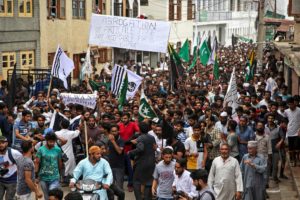
Critics have already likened Kashmir’s proposed new arrangement to the West Bank or Tibet, with settlers — armed or civilian — living in guarded compounds among disenfranchised locals. It is also evident that “The decision will reduce Kashmir to a colony,” Kashmiris will oppose the Hindu feeling in the region.
With this evil like step In Kashmir, there will a major transformation of the socio-economic landscape in the region, where Hindu Indian settlers will be “presented as patriotic pioneers braving Kashmiri Muslim resentment. Still, the main worry for many is that the central government’s actions will set in motion a plan to crush the identity of the people of Kashmir.
Indian census data puts the total population of the occupied part of Jammu and Kashmir at 12.5 million, about 68% Muslim, 28% Hindu and just under 1% Buddhist. Within the state, Kashmir is about 94% Muslim while Jammu is about 63% Hindu and 33% Muslim.
The remote mountainous Ladakh region has a population of just 274,289 people, with 46% Muslim and about 40% Buddhist. This data proves that the taken decision on Kashmir could further inflame the region if more power is shifted to Jammu, where Modi and his Hindu-nationalist party enjoy strong support.
Moreover, this world cannot afford to have another Palestine, and the major international players must not let it happen either. In Pakistan there exists a widely prevailing perception that the Hindu-nationalist BJP government had been seeking guidelines from Israel to render Kashmiri Muslims homeless in their own home on the pattern of the Palestinians.
Today, when the Kashmiris are going through the most difficult times of their history, hasn’t the time come for Pakistan to move beyond offering ritual moral, diplomatic and political support? Pakistan government also must stop this rhetoric of moral support now. They are a party to the dispute and they have every right to ensure implementation of the UN Security Council resolutions.
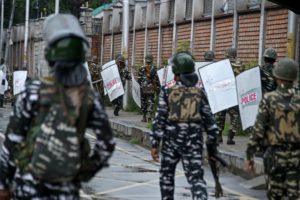
Many in Pakistan are looking upon Islamabad to go beyond offering “mere” moral, political and diplomatic support to Kashmir. The UN must intervene to stop India from going ahead with its ghastly plans in the disputed region of Kashmir.
From here on, Pakistan should mount a strong diplomatic offensive and take its message to world capitals. Kashmir is internationally recognized as a disputed territory, so India’s chicanery — by attempting to ‘localize’ the issue through amending its constitution — should fool no one.
Prime Minister Imran Khan brought up the possibility of war during Tuesday’s parliament session; while there is justifiable anger in Pakistan over the Indian subterfuge in Kashmir, the leadership must carefully choose its words to respond to Delhi’s provocations, lest its statements be misconstrued. The atmosphere in South Asia at the moment is highly tense and volatile. Therefore, the Kashmir crisis needs to be handled with sagacity, firmness and far-sightedness.
However, despite a paralyzing curfew, imposed to head off unrest in Kashmir, sporadic protests are taking place in Srinagar and the Valley. It is largely believed in the ranks of Kashmiri people that, the more Modi tries to choke Kashmir, the greater the possibility for the emergence of more radical forms of response.
Kashmiris have been gradually alienated by the Indian dispensation particularly in the last 5 years. Even moderate ones who once thought that to accept India as their country was a viable option has been left disgruntled. Day in and day out there is selective persecution of Kashmiris at the hands of Indian government .The resulting anger is resonating in every class and strata of society and may take a dangerous form at any provocation like abrogating article 370.
India Revokes Occupied Kashmir’s Special Status
This situation is challenging for the Indian state, too. The more it tries to choke resistance politics in Kashmir into submission through violence, the greater the possibility for the emergence of more radical forms of response.
As for Kashmiris, I recall, verses from a revolutionary poet, Faiz Ahmed Faiz, who wrote;
“Dil na umeed to nahi, nakaam hi to hai
lambi hai gham ki shaam magar shaam hi to hai”
Although my love has been a failure so far, my heart has not lost all hope. The evening of my sorrow is no doubt very long, but—after all—it is still only the evening !


